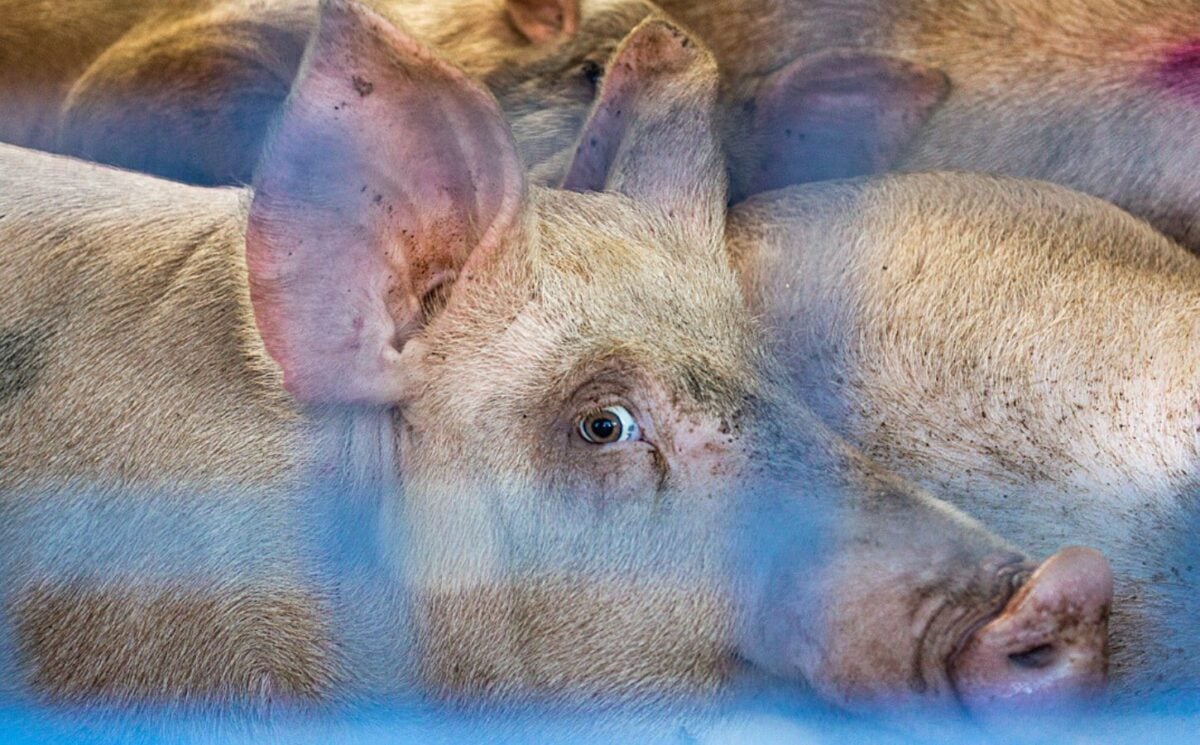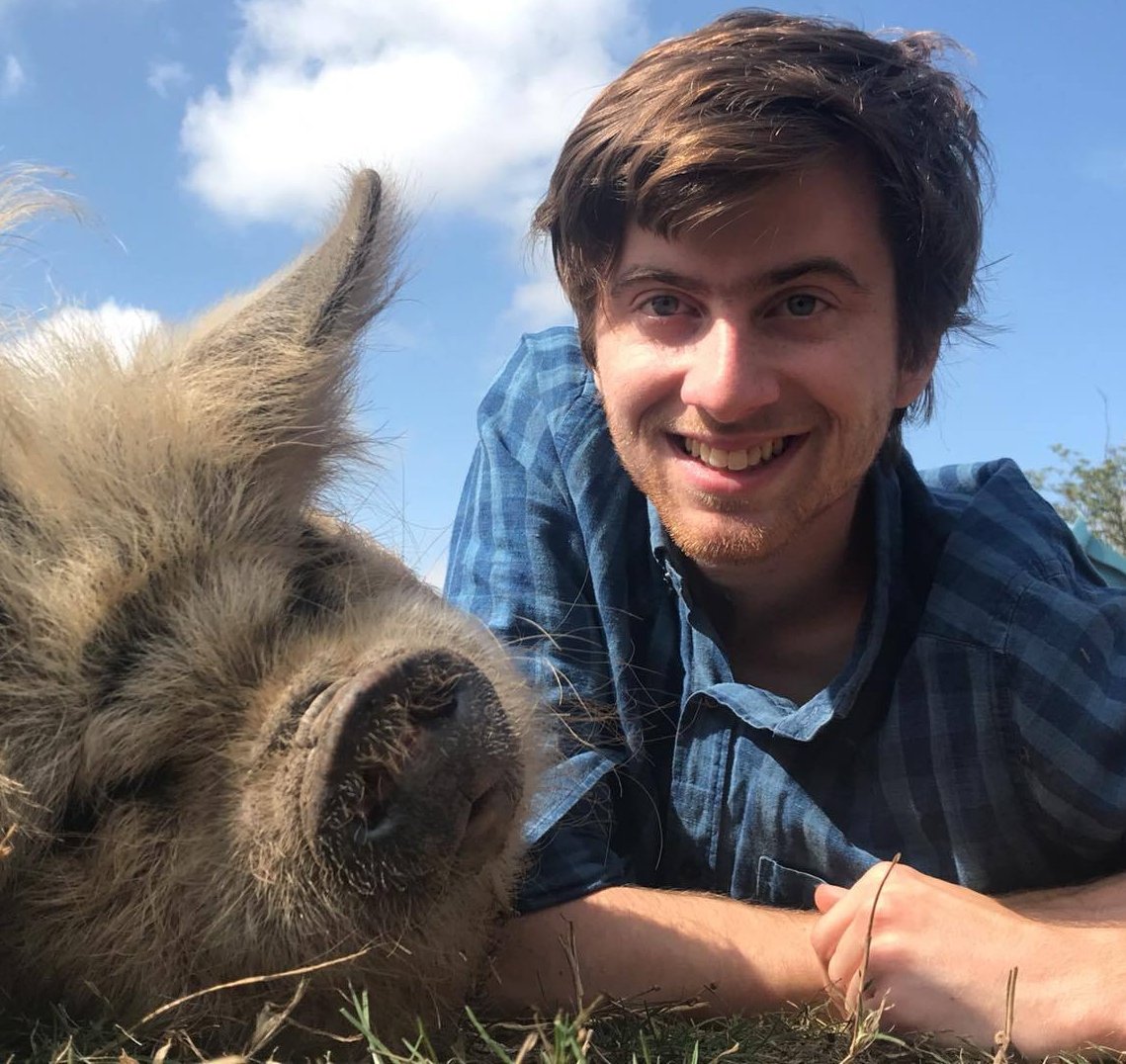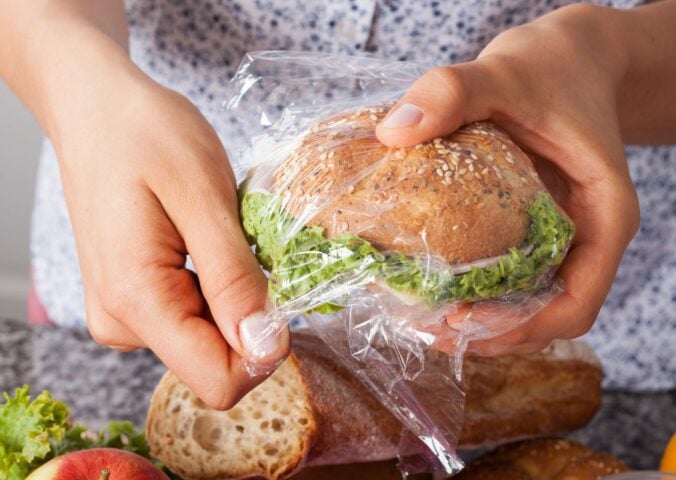The total number of pigs slaughtered for meat in the UK fell to 10 million in 2023, according to official statistics.
In total, 1.1 million fewer pigs were killed for meat than a year earlier, a drop of 10 percent. That makes 2023 the year with the lowest number of pigs slaughtered in the UK since 2013.
Meat industry representatives blamed factors including wet weather for the fall. However, the reduction is part of a longer-term downwards trend in demand for meat.
Last year, UK meat consumption fell to its lowest level on record. In response, the Agriculture and Horticulture Development Board (AHDB) has spent £4 million this month on an advertising campaign that aims to get younger people eating more meat.
Demand for pig meat is not only falling in the UK. It was reported recently that US pork producers were facing their “least profitable year on record.”
UK turning away from meat
Veganism has boomed in the past decade, with a recent study finding that there are now an estimated 2.5 million vegans in the UK.
More consumers are shunning meat for its ethical, environmental, and health impacts. Investigations into Red Tractor-approved farms have shown that animals face immense suffering, despite the UK’s claims to have the highest welfare standards.
In 2023, animal activist Joey Carbstrong released the first ever video of pigs being gassed to death in the UK. Around 88 percent of pigs in the UK are killed with this method, which is widely believed to be inhumane and cruel. Footage of pigs shrieking, gasping, and writhing in pain may have put a few people off their bacon sandwiches.
Moreover, plant-based meat alternatives continue to get closer to the real thing. Vegan meat brand La Vie recently launched a new meat-free ham into the UK, with excited consumers calling it a game changer. Other vegan brands, including THIS, have also re-created the meaty experience of bacon without harming any animals.
10 million pigs slaughtered
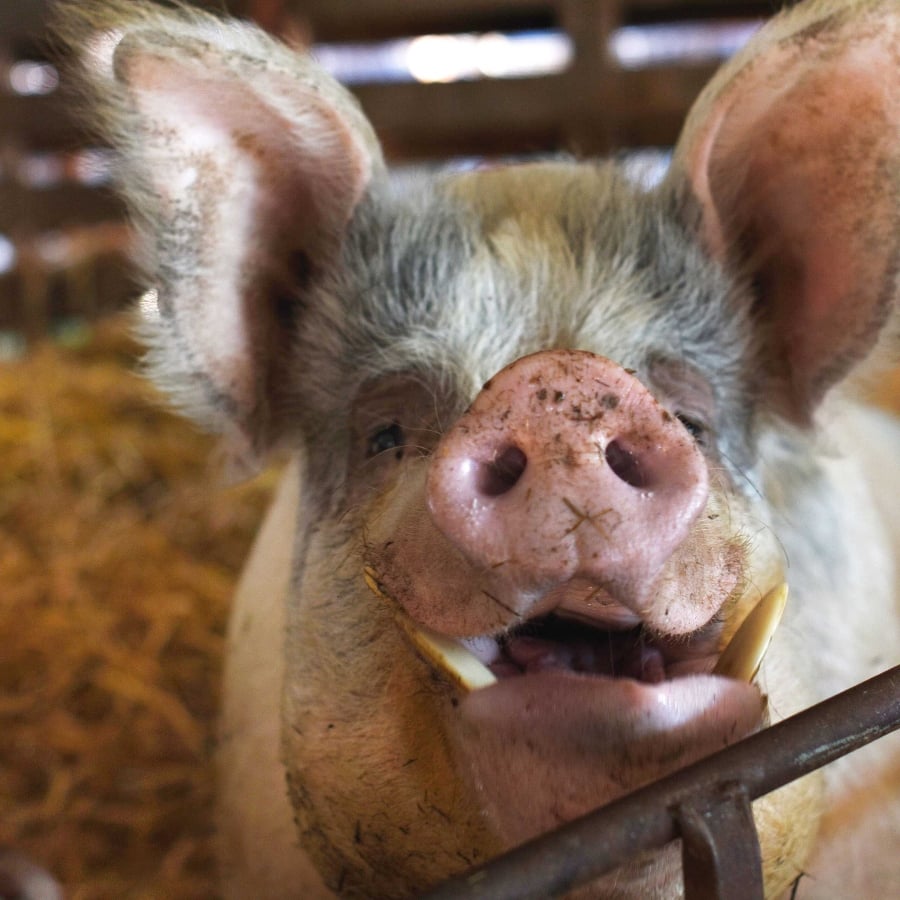
Despite the fall in pigs killed for human consumption, the number of wasted lives feels overwhelming. For many, it can be hard to visualize such an immense amount of death and suffering.
To give some perspective to the enormity of 10 million individuals killed in a single year for food, consider the story of George, who lives at Farm Animal Rescue Sanctuary (FARS) in Warwickshire.
Big George (or Gorgeous George) has lived at FARS for about eight years. He arrived at FARS after members of the public found him running down a country lane. Thin and tiny, George was initially bottle fed and lived in FARS’ blue barn with the elderly sheep. Before arriving at FARS, he had had his tail docked, a key indicator that he had escaped from an intensive factory farm.
After he had recovered from his ordeal and settled into life at FARS, George moved into his own area. He is now approximately 8 years old and weighs more than 400 kilograms. Free to roam, George loves rooting in the long grass. He also loves getting treats from visitors to the sanctuary. He tucks himself up into his straw bed under his heat lamp to rest after a day of wandering and playing. You can sponsor George and support FARS to care for more animals.
Carole Webb, the founder of FARS, told Plant Based News: “We will never be able to find out Big George’s origins, but he certainly made a very lucky escape. He is a much loved resident of our sanctuary, and we only wish every pig could enjoy the same life.”
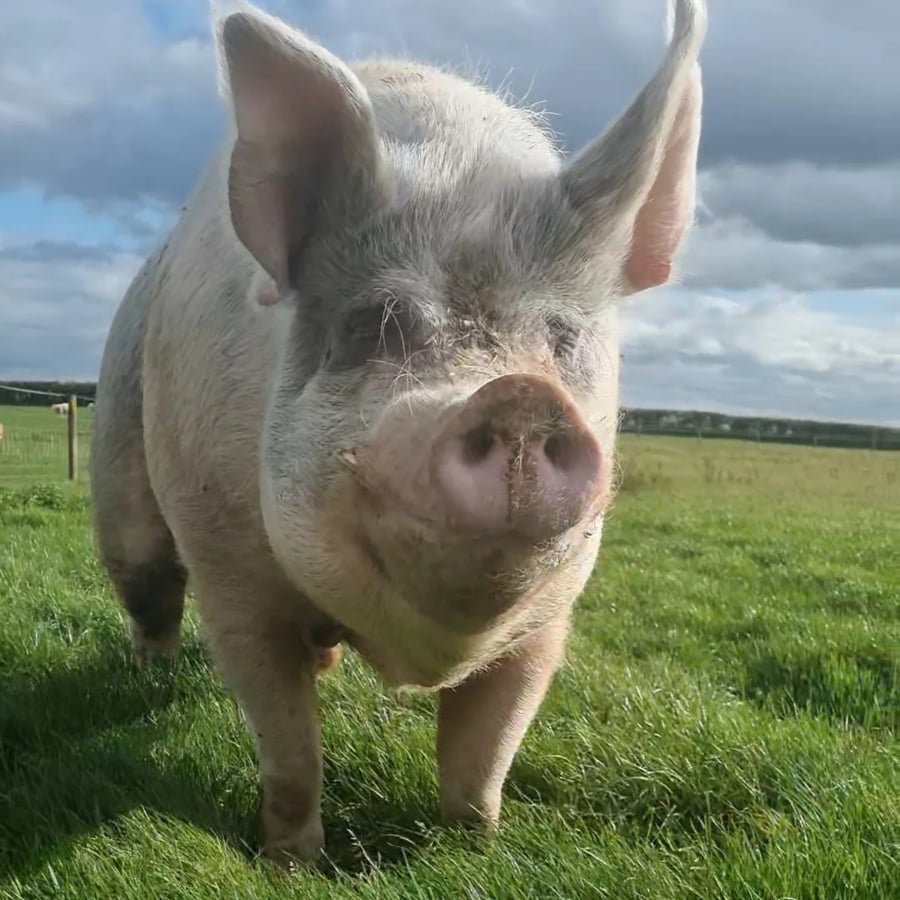
Pig farming is cruel
For those less lucky than George, life looks very different. Farmed pigs live in squalid and painful conditions all over the world. In the UK, around two thirds of pigs live on factory farms.
Breeding sows are forcibly impregnated twice a year via artificial insemination, and placed into “farrowing crates” around a week before they give birth. After being weaned from their mothers when they’re about four weeks old, piglets are taken to “fattening pens.” Six months later, they will either be sent for slaughter or used as a breeding sow.
Switching to a plant-based diet is the best way to minimize the suffering of farmed animals. With so many cruelty-free replacements available, from vegan pork belly to plant-based pigs in blankets, there’s no reason to make animals suffer for a meal.
